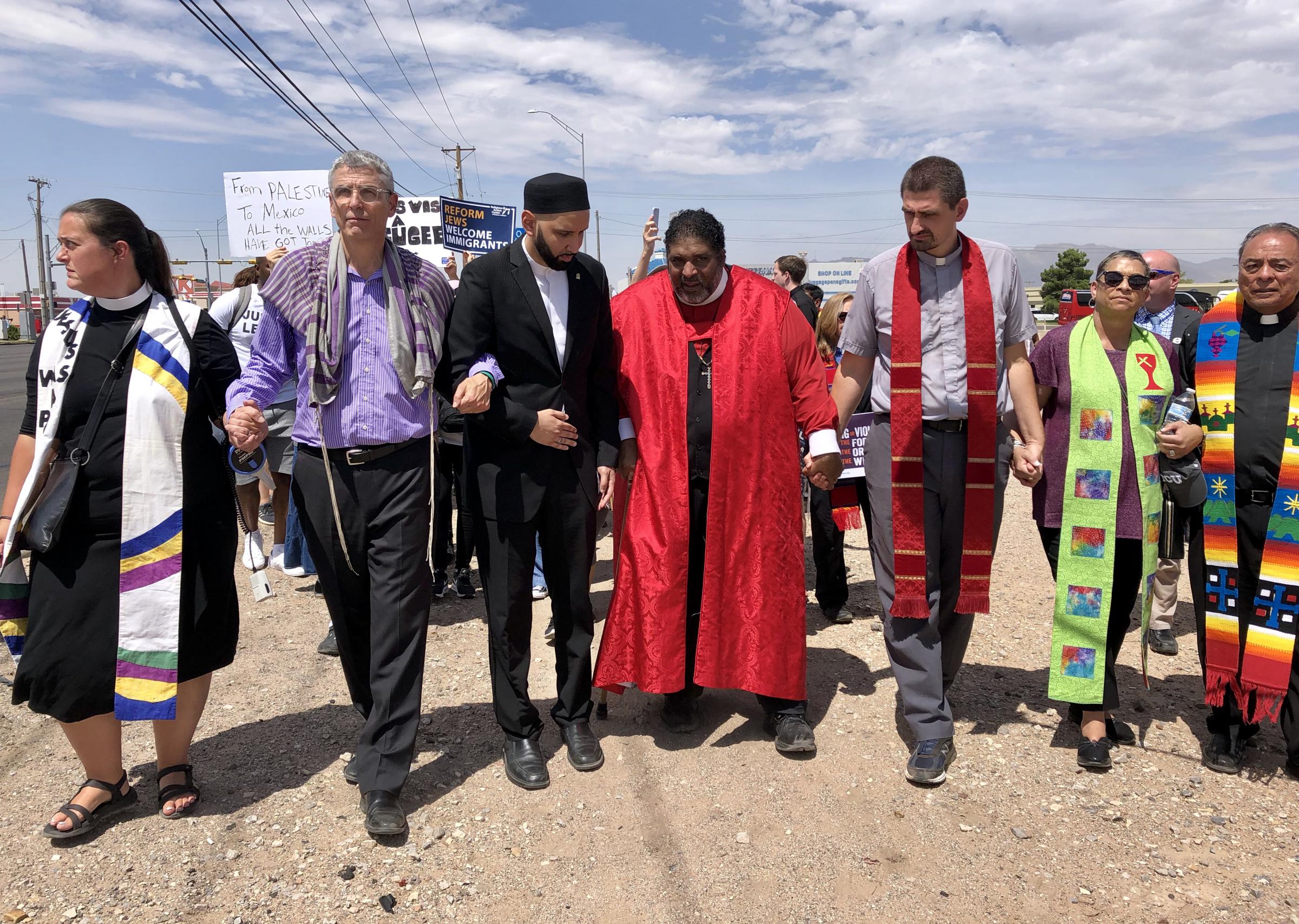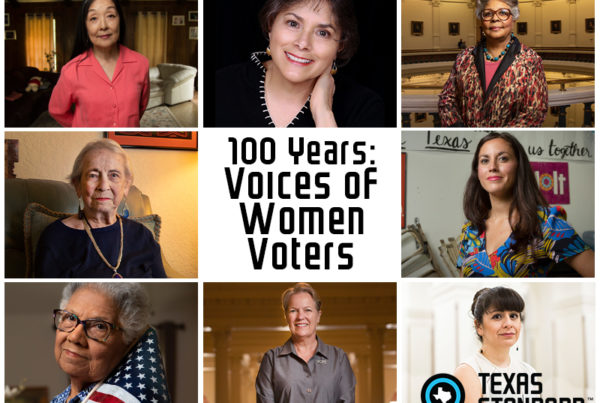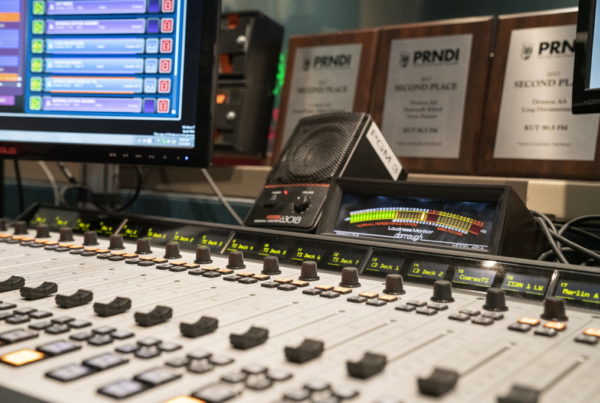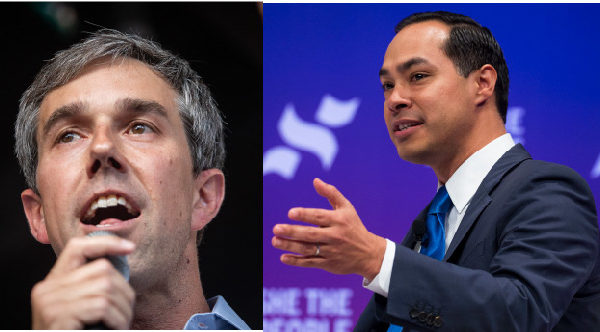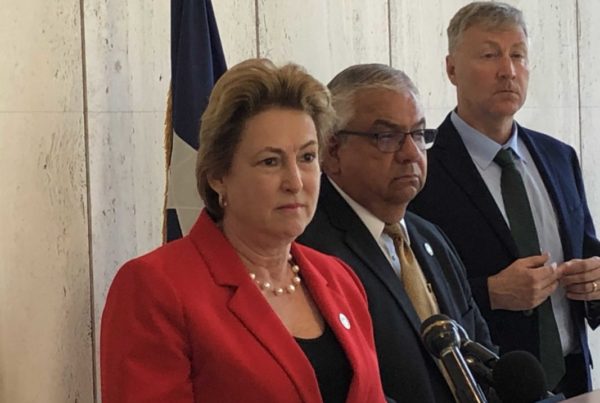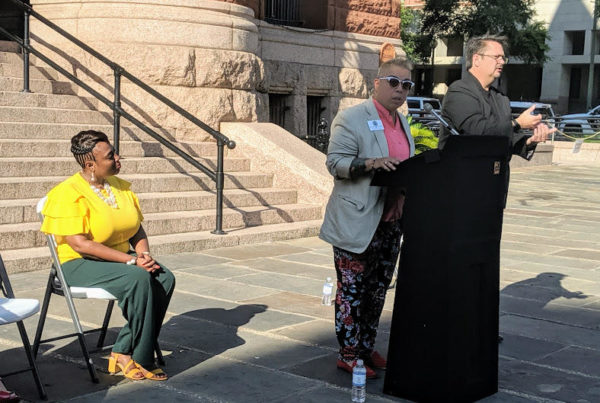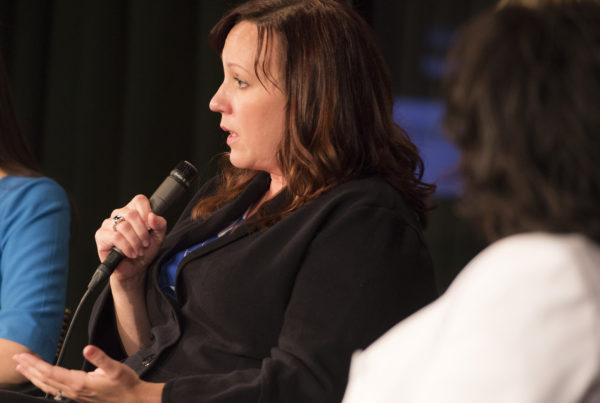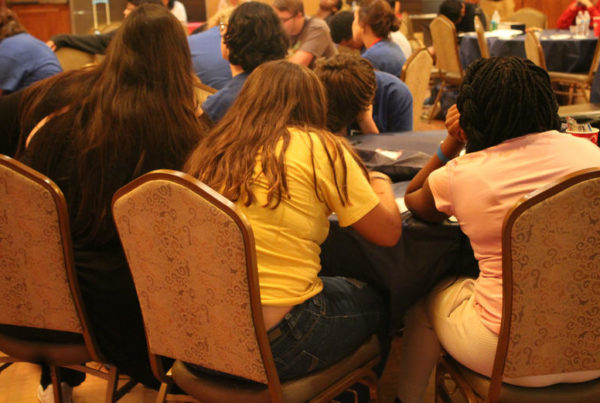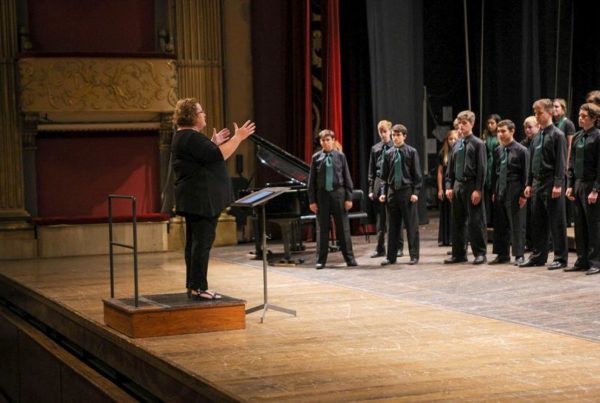From KERA:
The crisis on the U.S.-Mexico border has galvanized some religious communities in the U.S. Many congregations have thrown themselves into sheltering and advocating for migrants seeking asylum in the U.S. But the issue has also divided some churches.
In El Paso, religious leaders from across the country gathered to speak out in support of migrants. On Sunday night, hundreds of people squeezed into El Paso’s First Christian Church for a meeting. The crowd included Christians, Jews and Muslims.
Rev. Terri Hord Owens, general minister and president of the Christian Church (Disciples of Christ) in the United States and Canada, is the first black woman elected to lead a large Christian denomination.
“We can read our sacred text, we can pray our prayers, but unless we’re going to show up for humanity no one believes us,” Owens said. “Our prayers and our texts are vain unless we show up for our brothers and sisters. Our babies. Our babies.”
She said she rejects people using Christian texts to justify current immigration policies. When the Trump administration announced its family separation policy last summer, then-Attorney General Jeff Sessions cited a Bible verse in its defense. Several high-profile evangelical leaders have shown unwavering support for President Trump’s immigration agenda. Last month, Jerry Falwell Jr. lashed out at a preacher who criticized conditions in Border Patrol facilities.
That kind of thing doesn’t make sense to Imam Omar Suleiman, who traveled to the meeting from Dallas.
“If you say that Jesus is in your heart but you would put him in a cage today, you are a hypocrite,” Suleiman said.
On Monday, the interfaith assembly staged a protest outside an El Paso immigration detention facility. The Rev. William Barber helped organize the event.
“Particularly right now in America, we’ve got this religious nationalism that’s on all the wrong sides of our religious values,” Barber said.
Barber is an acclaimed civil rights leader from North Carolina. At a time where Christianity and politics are so closely intertwined, he said he is disturbed by what he hears from some fellow Christians.
“They are against health care, they’re against gay people, they’re against voting rights, they’re for guns,” Barber said. “They’re talking about ‘It’s right to build walls.’ And there has to be another witness; there always has been another witness. You had slaveholder religion, but then you had the religion of Frederick Douglass.”


